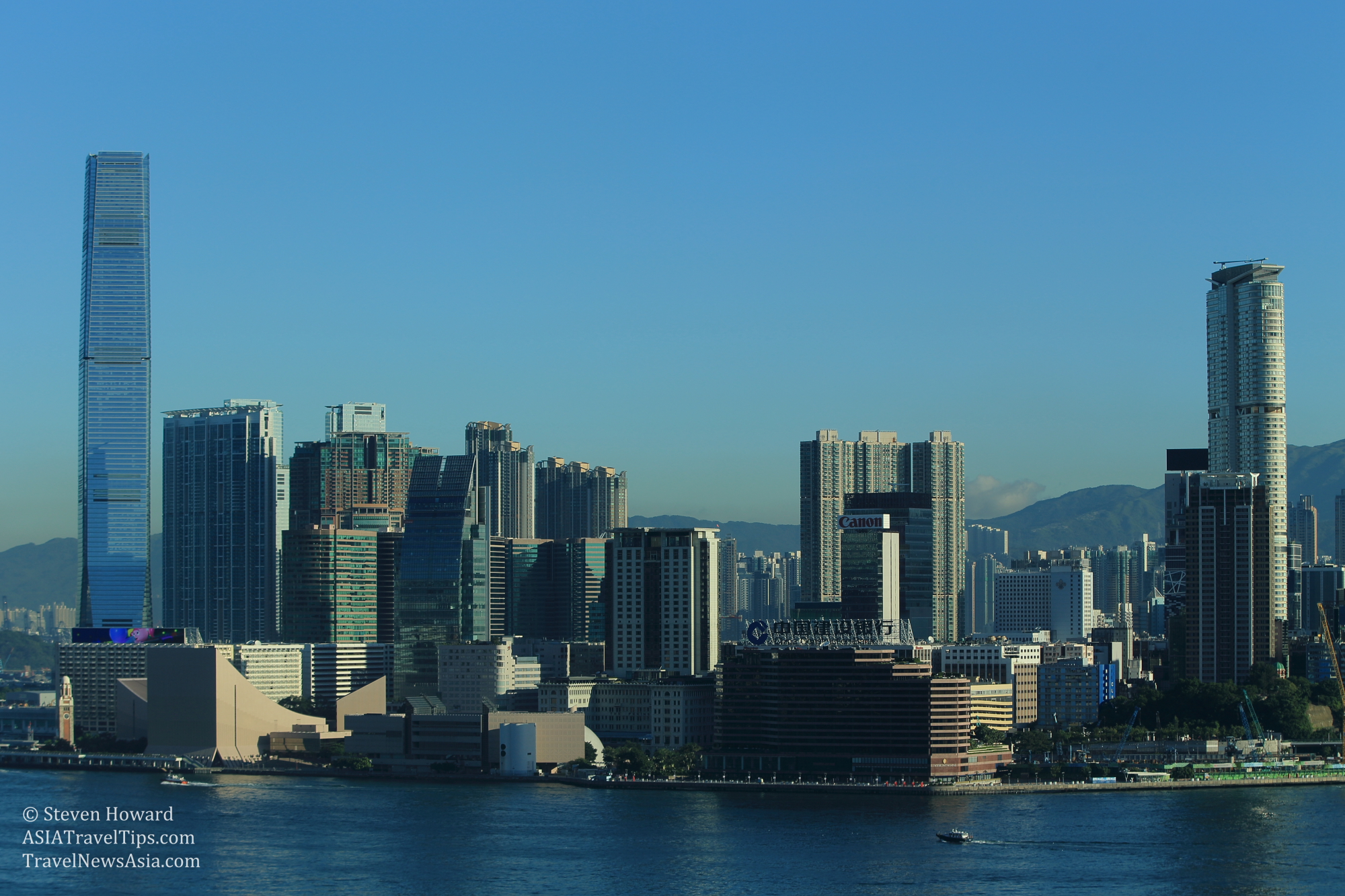|
Targeting the backpacker segment may be an
effective means of diversifying Hong Kongs tourism market and
promoting sustainable tourism, according to Dr Wantanee Suntikul,
Dr Denis Tolkach, Dr Elizabeth Agyeiwaah (Ph.D. graduate) and Mr
Ching-Nok Lung (BSc graduate) of the School of Hotel and Tourism
Management (SHTM) at The Hong Kong Polytechnic University.
In a recently published article, the
researchers revealed that, according to survey results,
backpackers are pushed by the search for new ideas and pulled by
the unique food culture of Hong Kong. The article also suggests
that backpackers are more likely to support the
local economy than other types of tourists, many of whom visit,
it says,
because of its reputation as an international shopping
destination.

Until very recently, Hong Kongs
tourism market was dominated by continual growth in the number of
mainland Chinese tourists, who were predominantly interested in
shopping. However, this trend has been reversed in the past few
years, as the number of mainland visitors dropped from a peak of
47.2 million in 2014 to 40.3 million in 2016. Potential reasons
for this change include local residents resentment towards
shopping tourism, especially parallel trading, in which goods are
transported from Hong Kong to mainland China for resale, and the
general economic downturn.
Whatever the reasons,
the researchers stress that there is an urgent need for Hong Kong
to diversify its tourism offerings. The backpacker market
presents one such opportunity, because these tourists demand
little infrastructure development and tend to spend more money
with local businesses, thus benefitting local communities.
Importantly, the researchers note that backpackers are an
educated group of generally younger adults who like to travel
independently and interact with the communities they visit. They
are usually quite adventurous and do not confine themselves to
their comfort zone but prefer to explore unfamiliar places with
an emphasis on outdoor activities and eco-travel. Because they
often spend longer at a destination, their overall spending is
higher than that of other tourist groups, and they often visit more remote districts and use local services, thus spreading their
expenditure throughout the local economy.
However,
the benefits of the backpacker market have also been challenged,
with some studies suggesting that there may be limited or even
negative effects on local communities. Understanding the
motivations, preferences and behaviour of backpackers in Asia is
an important first step in deciding whether and how to attract
this particular group.
The researchers thus
conducted a survey of backpackers staying at seven youth hostels
in Hong Kong, as hostels are an inexpensive accommodation option
that is popular among backpackers. Other respondents were
surveyed while taking part in outdoor activities, such as hiking
on the popular MacLehose Trail and Dragons Back Trail. Overall,
90% of the respondents were staying in youth hostels and the other
10% were interviewed outdoors.
More than 60% of the
respondents were independent female travellers in their twenties,
and more than 93% held a Bachelors degree. Almost 80% came from
North America, Australia or Europe, and just over 20% from Asia.
Their average length of stay in Hong Kong was a week or less, and
they spent around US$46-86 per day - quite a low amount when you
consider the average hotel room rates in Hong Kong. According to the researchers,
they tended to visit remote areas of the city, guided in their
itineraries by guidebooks and social media.
The
main pull factors that motivated the backpackers to visit Hong
Kong were the unique local food, the opportunity for friendship
with people of different countries and the local lifestyle.
The researchers note that the desire to experience
local food is not generally associated with backpackers travel
motivations. This is an important finding because it
differentiates backpackers in Hong Kong from those in other
destinations and indicates a means of attracting this group of
travellers. Food as a pull factor serves as a source of
employment and income for local food providers and indirectly for
local farmers. It also offers opportunities for cultural exchange
between travellers and host communities.
Shopping
was ranked as the lowest priority, as expected given the usual
interests of this group of travellers. Rather more surprisingly,
outdoor activities also ranked very low, despite such activities
normally being one of the main attractions for backpackers. The
researchers suggest that this may be because Hong Kong is not
primarily a nature-based destination and outdoor activities are
not part of the destinations image.
Among the
internal push factors that motivated the respondents to visit
Hong Kong, the top three were learning new things,
independence and experiencing unfamiliar life.
Again, the researchers note that the most important factor, the
desire to learn new things, differs from that found in studies
conducted elsewhere, which have tended to identify escape and
relaxation as backpackers main internal motivation.
Similar to backpackers elsewhere, the majority of respondents
preferred to stay in youth hostels, although they differed in the
elements and qualities that they expected. Friendly local
staff was the most important accommodation feature, along with areas for meeting new friends. As the researchers note, these
features fit well with backpackers desire to learn new things, as
friendly local staff provide an environment for interaction and
local knowledge, and this is complemented by the opportunity to
make new friends.
Not surprisingly, the study also highlighted the preference for local street
markets. Researchers suggest that this is indicative of how Hong
Kongs existing attractions could be capitalised on, because
backpackers are more interested in exploring the unique features
of a destination, which does not require any additional
infrastructure.
Another element of the
contribution backpackers make to Hong Kong is the extent to which
they contribute to the development of sustainable tourism. The
backpackers interviewed say they were much more likely to buy products
from local shops than from international brands, thus supporting
local employment at the destination. They also contributed to
sustainable tourism by supporting local activities, such as
participating in cultural workshops and other culture-related
activities, and interacting with village residents.
|
Headlines: |
|
See latest
HD Video
Interviews,
Podcasts
and other
news regarding:
Hong Kong.
|
